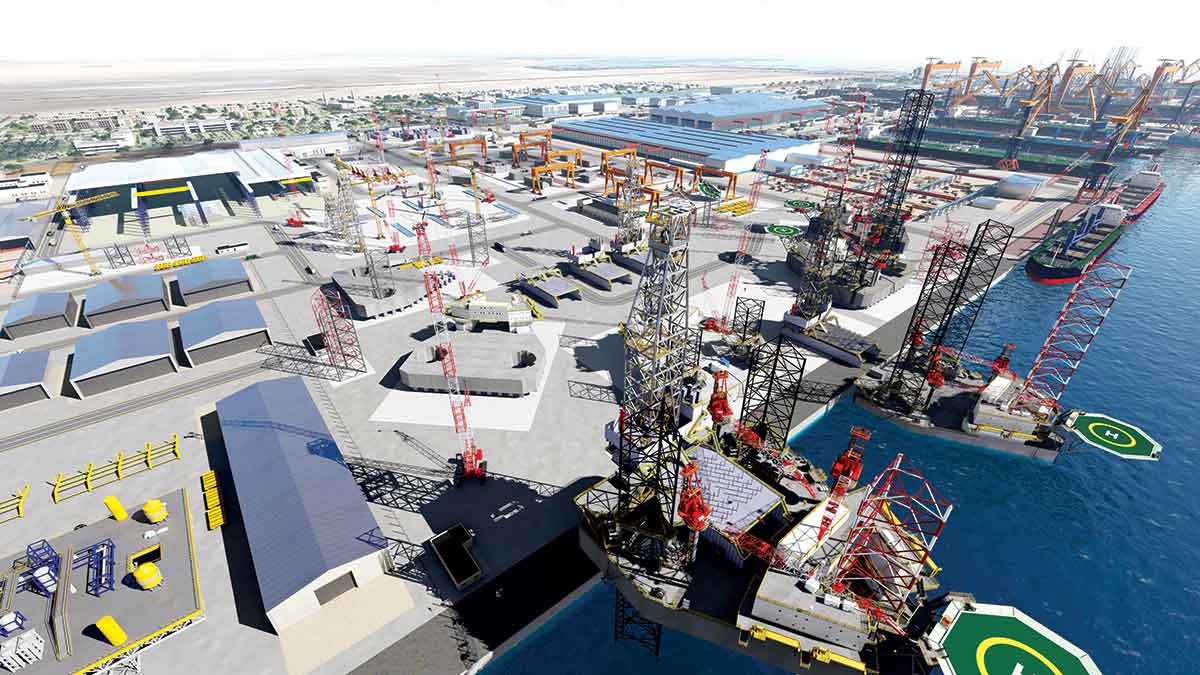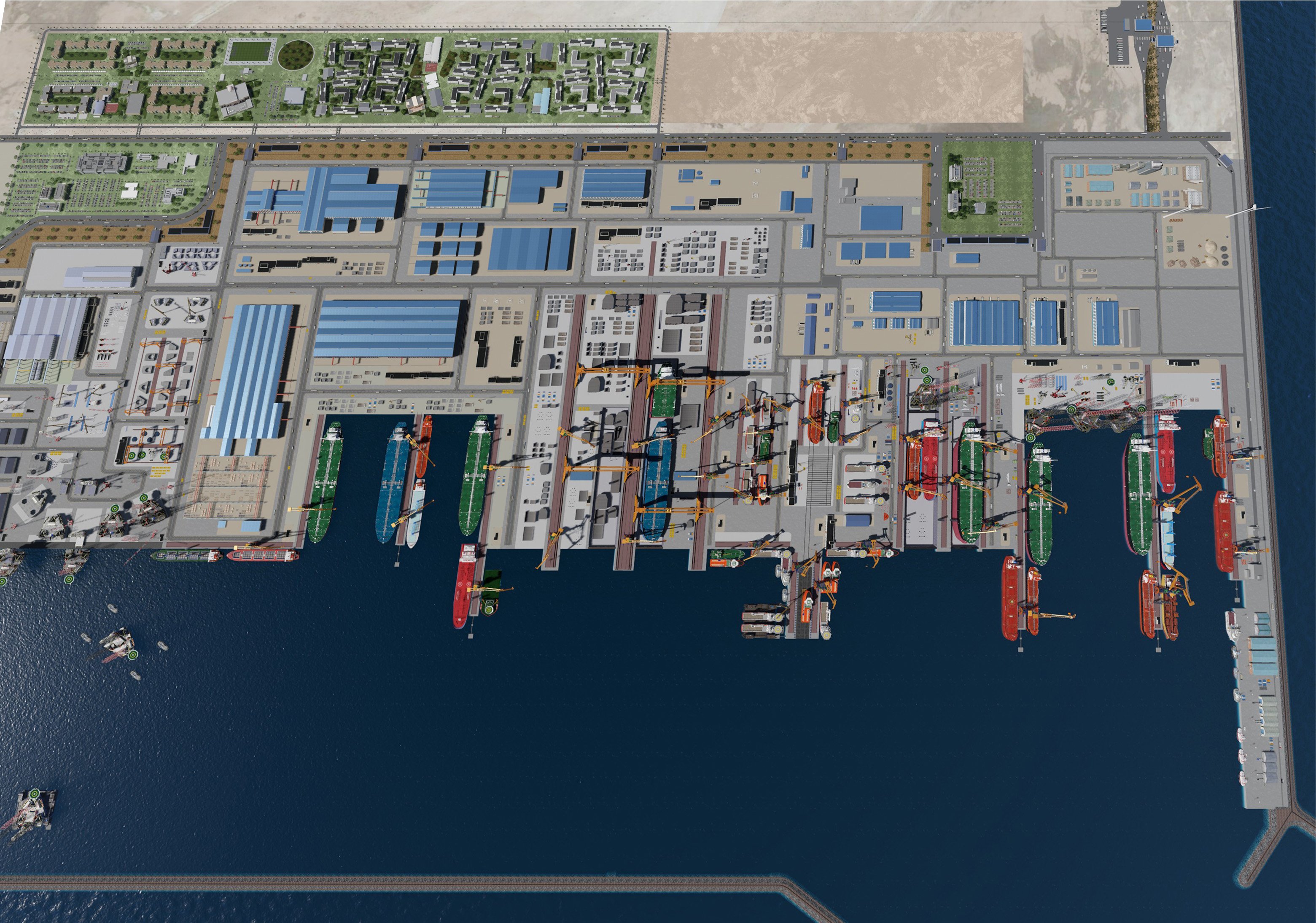RIYADH — Saudi Arabia is rapidly transforming its economy and diversifying its financial revenues to reduce reliance on crude oil as the primary source of the country’s budget. One of the most notable initiatives in this regard is Saudi Aramco’s development of the King Salman International Complex for Maritime Industries and Services.
This project is expected to yield significant investment returns for the state and contribute more than $17 billion to the GDP of the Arab world’s most prominent economy. The King Salman International Complex for Maritime Industries and Services, located in Ras Al-Khair near Jubail Industrial City on Saudi Arabia’s eastern coast, is a shipyard and offshore drilling rig.
Currently under construction, the Aramco-owned complex will be the largest marine industries complex in Saudi Arabia and the Middle East and North Africa in terms of production capacity and scope once completed.
The complex aims to support the Saudi industry by localizing technologies and meeting the needs for building offshore oil and gas rigs, offshore platforms, offshore support vessels, and giant crude oil tankers. It will also manufacture commercial ships and a range of marine equipment, potentially offering maintenance and restoration services for these items.
Observers suggest that the complex’s objectives include attracting domestic and international investment, enhancing the structure and competitiveness of the Saudi industry, and aiding the nation’s ongoing economic diversification and growth.

It also seeks to localize technology in the marine industries sector by fostering initiatives that enhance the supply chain network. The complex will position Saudi Arabia as a regional technical hub with top-tier marine engineering and construction knowledge.
According to the Saudi Press Agency (SPA), Ahmed Al-Saadi, Executive Vice President of Technical Services at Saudi Aramco, stated in January 2023 that “the King Salman Marine Industries Complex will add more economic value that contributes to achieving the goals of Saudi Vision 2030.”
He added that the complex would contribute US$17 billion to Saudi domestic product and explained that the Kingdom had invested approximately US $3.8 billion in the complex’s infrastructure work.
Al-Saadi also mentioned that the complex is expected to reduce imports of marine equipment and services by up to US$12 billion by 2030 and create many direct and indirect job opportunities. Once completed, the complex will be one of the largest full-service marine facilities in the Middle East and North Africa region, enabling the Kingdom to expand its products to larger markets and meet its demands in this critical sector.
The complex, which spans five square kilometers and extends four kilometers along Ras Al-Khair’s eastern coast, is divided into four operational areas.
Each area is equipped with seven dry docks and 17 different types of marine berths. The project, officially launched on November 29, 2016, by King Salman bin Abdulaziz, is expected to cost more than US$5.33 billion.
The complex will enable the domestic manufacture of offshore rigs for oil and gas, offshore platforms, ships, and oil tankers, reducing the need for imports. This capability is crucial for the Kingdom given its focus on gas expansion and export, especially in light of the global trend toward clean energy.
The complex will also attract foreign investment and spur rapid development in the Kingdom’s industrial sector, leading to significant economic growth. Furthermore, the production of ships, oil tankers, gas platforms, and other marine industries will generate substantial revenue, positioning Saudi Arabia as a global leader.

